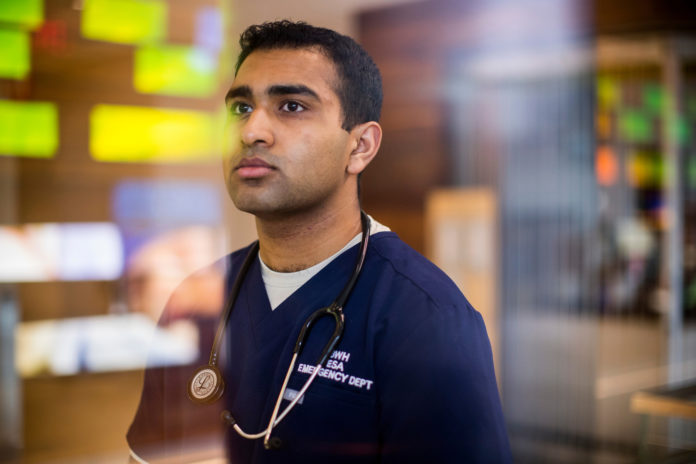
By Khalida Sarwari
News at Northeastern
Every night at 8 p.m., as many of us are winding down for the evening, Abhishek Mogili pulls a mask over his face and wriggles his hands into purple nitrile gloves. He’s ready to begin another 12-and-a-half-hour shift as part of his co-op in the emergency department at Brigham and Women’s Hospital in Boston.
The surge in COVID-19 patients that everyone knows is coming hasn’t happened yet, but the days are still long, and sometimes relentless. Mogili, a third-year biology and political science student at Northeastern, works as a department technician alongside the hospital’s doctors and nurses, doing whatever he can to lighten their load.
When he’s not assisting with the transport of patients, he’s collecting and labeling their tests. Think of him as an extra set of hands. A patient needs to be weighed? He’s got it. A nurse who’s looking after a COVID-19 patient needs to step out to grab something? Mogili will take care of it. A doctor forgot to wear her mask before visiting a patient? Mogili will remind her.
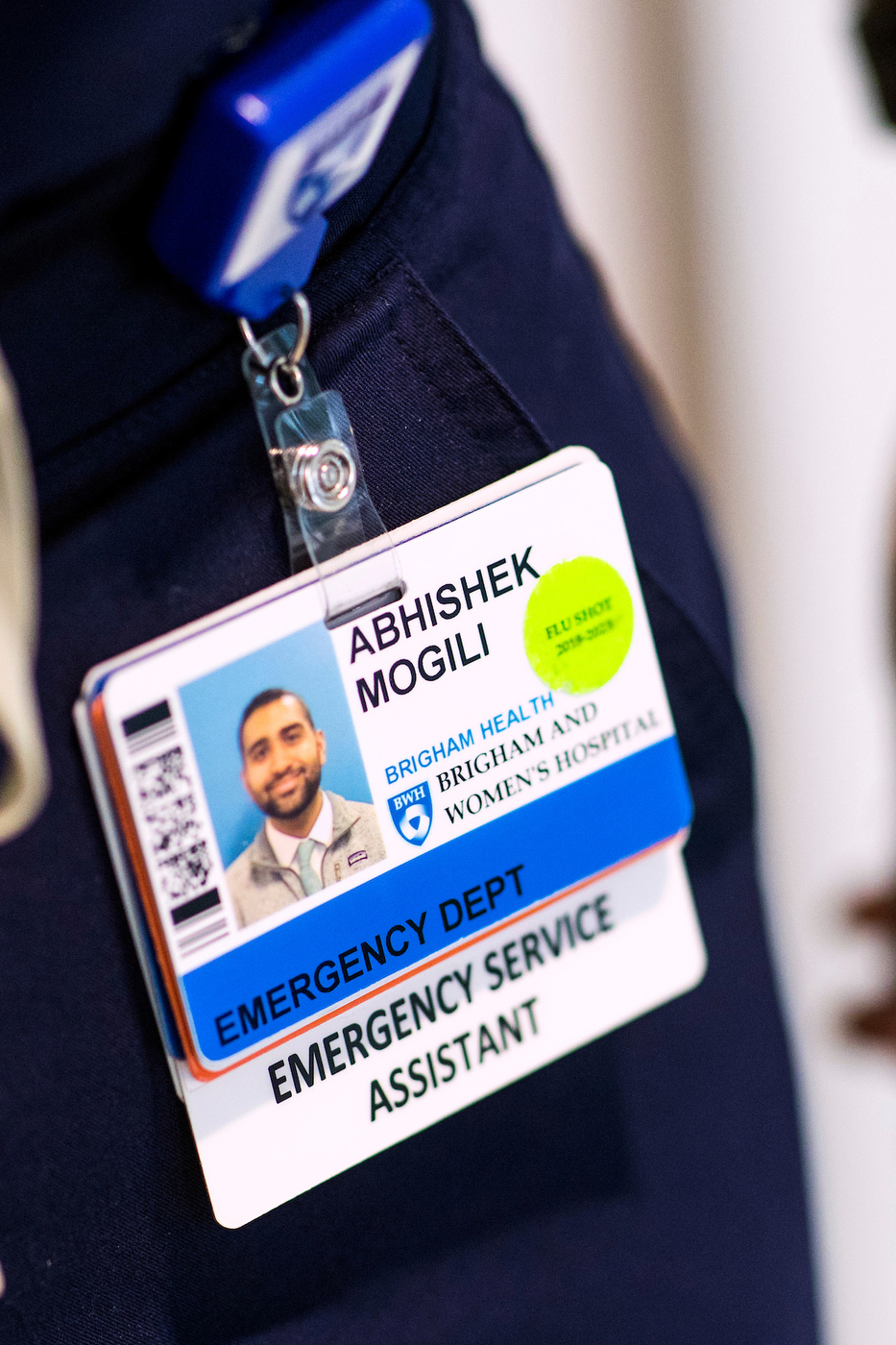
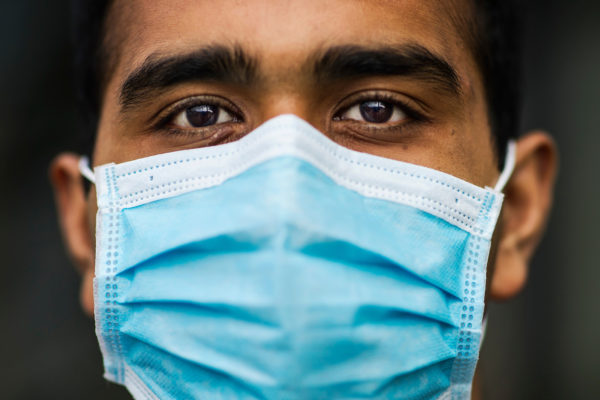
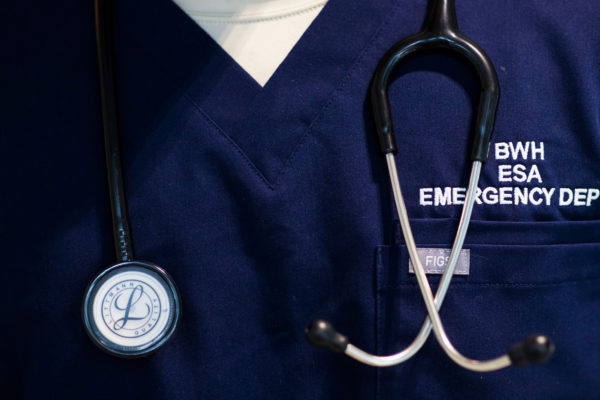
Anybody who goes into the rooms of any patient suspected of having COVID-19, “basically we’ll have somebody in my position make sure that all their personal protective gear is on correctly,” he says. “And we give them the OK to go in.”
Lately, he has been extra vigilant about keeping track of the items that go in and out of the patients’ rooms to prevent cross-contamination, and reminding staff not to be wasteful with precious resources, such as face masks.
Contrary to what one would imagine a hospital to look like amid the current state of affairs in the world right now, Brigham and Women’s is not teeming with patients afflicted with COVID—yet. In fact, the last two weeks have been slower than usual, says Mogili. But this doesn’t strike him as unusual.
Staff have taken measures to increase the hospital’s capacity in anticipation of handling a large influx of COVID patients—entire units have been created for these patients. Elective surgeries have been canceled, and doctors’ schedules have been cleared. More tests are on the way. It’s as though everyone were bracing for a surge that is sure to come, Mogili says.
“It’s the calm before the storm,” he says.
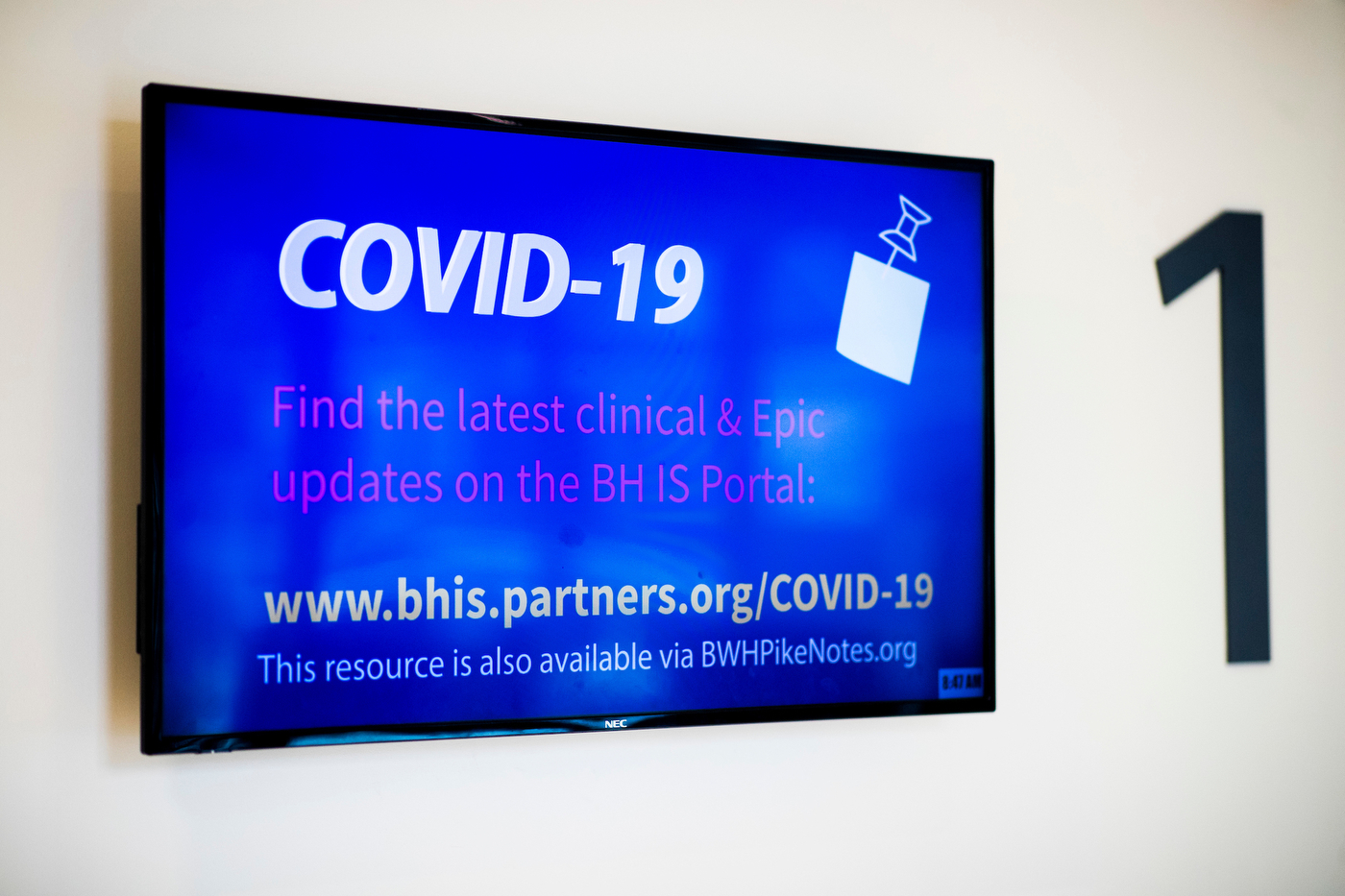
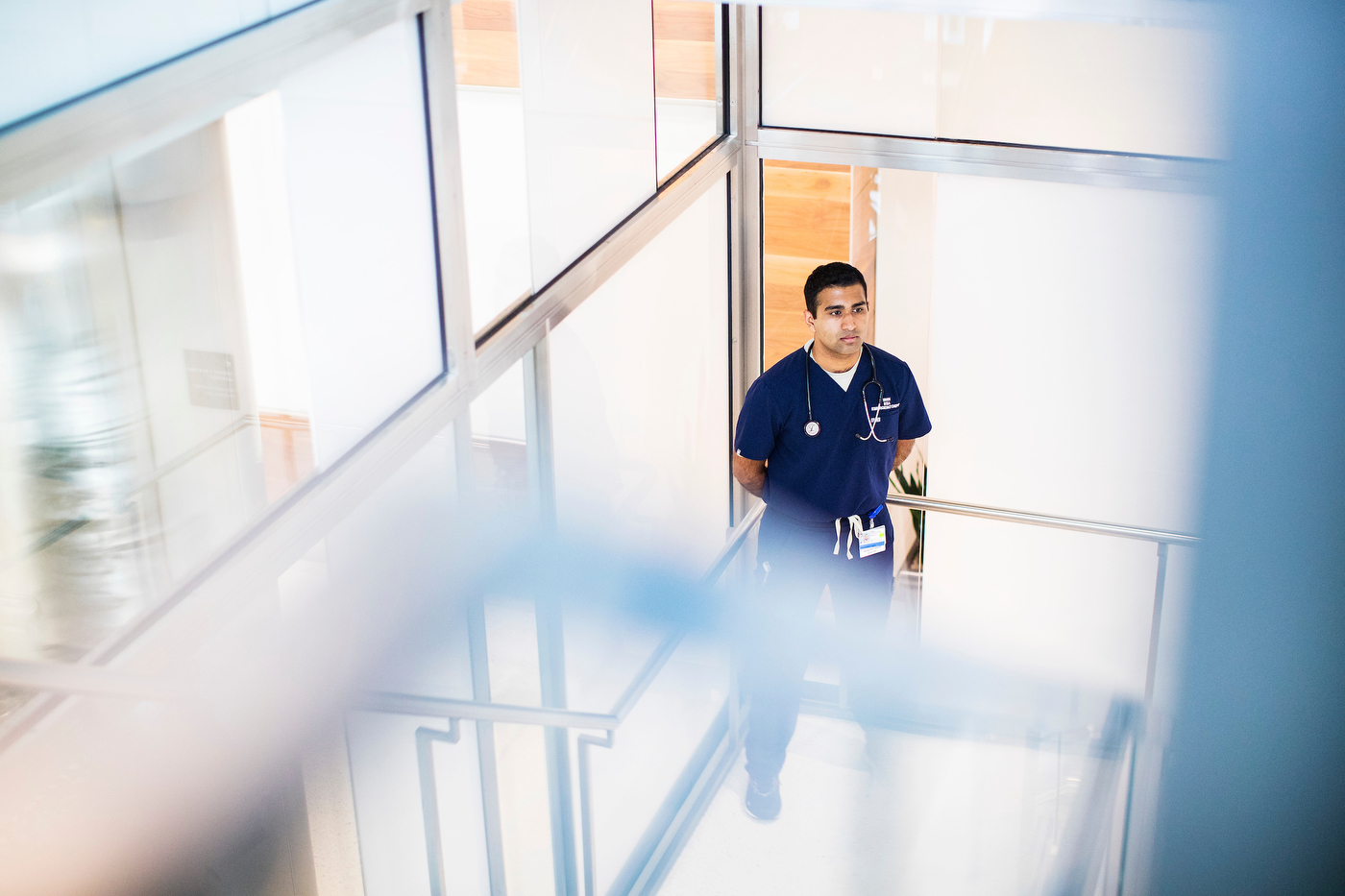
As the rate of infected patients in the Boston area steadily continues to rise, on busier nights, the thrill of clocking in at work for Mogili has given way to exhaustion. At first, the hospital was admitting people who were considered presumptive positive cases. Now it’s older people, and in some cases, people with other diseases or conditions—respiratory illnesses, for example—who require more attention and more care, Mogili says.
At times, tensions run high. At one point last week, there was a disagreement, he said, about how to treat a patient with breathing issues.
“We want to minimize the risk for our providers in terms of aerosolizing what’s in their lungs with the disease, but also making sure that the patient is getting the best care that they can get,” he says.
Mogili says he’s trying to keep a cool head about it all. Maybe because he’s in a setting where he can do something about the problem, he thinks it helps keep feelings of anxiety at bay.
Mogili says there’s nowhere else he’d rather be right now. Amid this experience, he has decided to pursue a master’s degree in public health focusing on epidemiology and apply to medical school, so working at Brigham and Women’s has been invaluable, he says. After Northeastern, Mogili, who is also a cadet in the Air Force Reserve Officers’ Training Corps, said he plans to commission as a second lieutenant and hopes to work on global health issues.
“This is the perfect opportunity for me to see how a hospital changes its policies [and] changes the way it works in response to a pandemic, something that I hope to be a part of in the future,” Mogili says.
A lot has changed for Mogili—and the world—since he started his co-op program in January. Sometimes he pauses to take it all in. He feels grateful.
“Every now and then, whenever I’m not as busy, I’m like, ‘Oh, this is so cool that I’m here, I’m doing this,’” he says. “It’s great to be able to say I was able to do something to help others during this [crisis].”
(Reprinted with permission from the News at Northeastern.)













